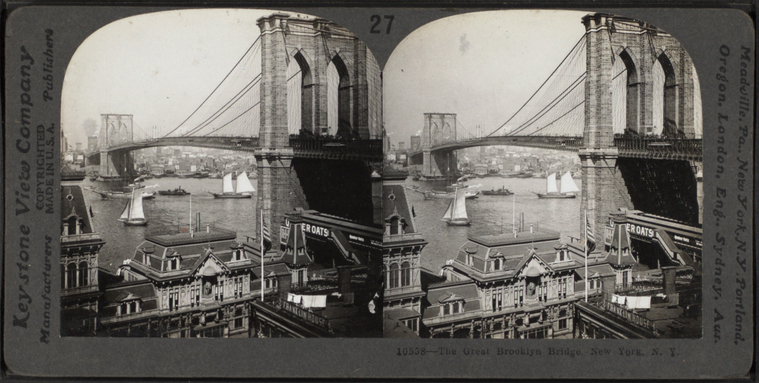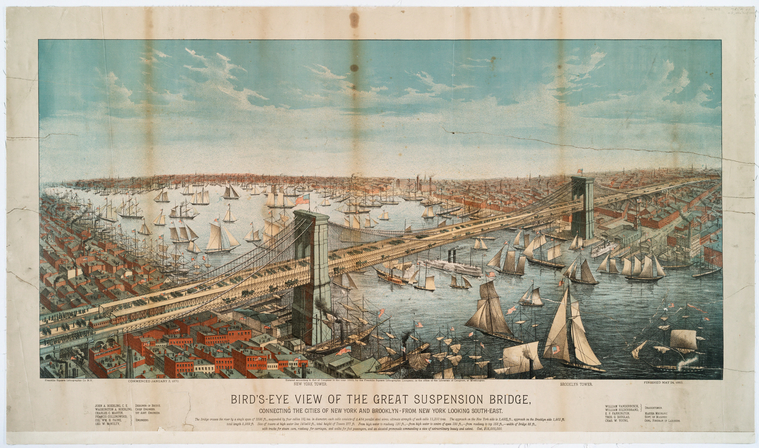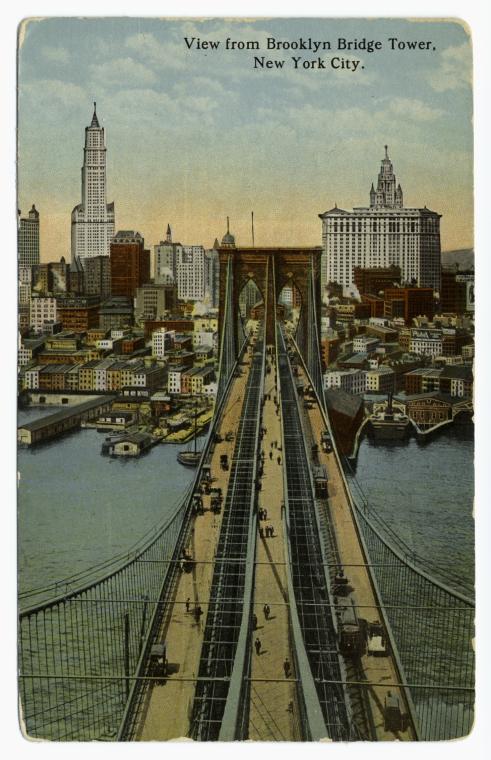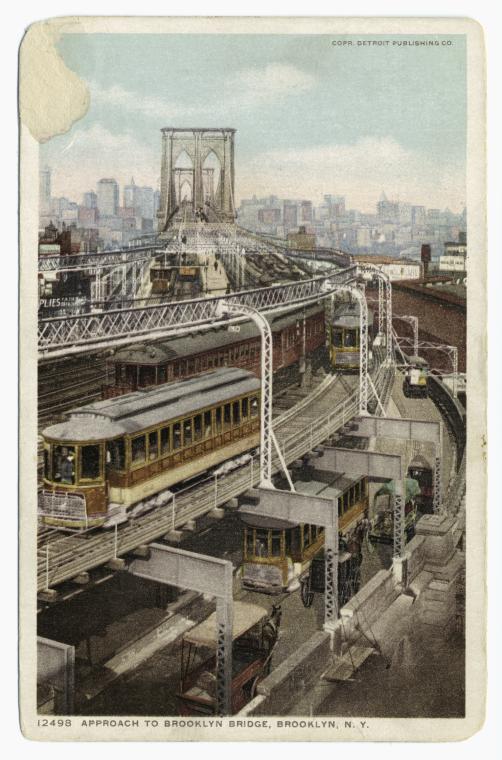Not For Sale: The Iconic Brooklyn Bridge Celebrates Over 130 Years
For over 130 years, the Brooklyn Bridge has been an icon of the New York City landscape—longer if you account for the 13 years required to construct it. This beloved connection between boroughs is still in use while many of its contemporaries have been replaced or dismantled worldwide.
When the bridge opened in 1883, New York was a different sort of town. Also referred to as either the New York Bridge or East River Bridge until its official naming in 1915, it was the longest suspension bridge in the world when it was built. New York and Brooklyn were still separate cities. Streetcars, horse drawn carriages, and elevated trains were the primary form of NYC transit. Electric light bulbs and phonographs were new, "sky-scrapers" were just becoming popular, and it was the first season of the New York Gothams, the baseball team that evolved into the New York (and later San Francisco) Giants.
Thousands attended the opening ceremony on May 24 of that year. Ships filled the East River for the occasion. U.S. President Chester A. Arthur and New York City Mayor Franklin Edson crossed the span to celebratory cannon fire and were greeted by Brooklyn Mayor Seth Low when they reached the Brooklyn-side tower. The New York Times ran several articles on the day, including "To-Day's Great Ceremony: Everything Ready For the Opening of the Bridge" and "The Building of the Bridge: Its Cost and the Difficulties Met With—Details of the History of a Great Engineering Triumph," along with several articles describing the bridge's construction (read them in the New York Times here). You can read all of the speeches given on opening day via Google Books, Project Gutenberg, Archive.org, or HathiTrust.
Building the Brooklyn Bridge came at a high price. An estimated twenty-seven to forty men died during its construction. Its designer, John Augustus Roebling, crushed his foot while conducting surveys for the bridge project—an injury that led to amputation of his toes and a tetanus infection which resulted in his death. Before his passing, he placed his son Washington Roebling in charge of the project. During this time, medical professionals discovered an entirely new affliction, decompression sickness—originally called caisson disease or "the bends," which workers digging out the huge caissons suffered en masse. Washington was affected by the bends to the extent that it kept him away from the bridge's construction site, which was ultimately overseen by his wife, Emily Warren Roebling, who was technically the first New Yorker to walk across the bridge.

It didn't take long for the bridge to embed itself into American popular culture. Not long after its opening, a successful scam artist managed to "sell" the Brooklyn Bridge to several gullible victims. The expression "if you believe that, then I have a bridge to sell you" has since become a fixture in American slang to highlight someone's naïvety.
The construction of the Brooklyn Bridge is detailed in the 1978 book The Great Bridge by David McCullough, and in the first PBS documentary film by Ken Burns. There are hundreds of items in the library catalog about the Brooklyn Bridge, ranging from children's picture books to adult picture books, and from middle school fiction to rare books of poetry. Images of the bridge abound in the NYPL Digital Gallery, including several photographs of its construction, stereoscopic views, and vintage postcards. Celebrate its anniversary with a stroll along the pedestrian walkway.
 The Brooklyn Bridge today. Photo by Jonathan Blanc.
The Brooklyn Bridge today. Photo by Jonathan Blanc.
Read E-Books with SimplyE
 With your library card, it's easier than ever to choose from more than 300,000 e-books on SimplyE, The New York Public Library's free e-reader app. Gain access to digital resources for all ages, including e-books, audiobooks, databases, and more.
With your library card, it's easier than ever to choose from more than 300,000 e-books on SimplyE, The New York Public Library's free e-reader app. Gain access to digital resources for all ages, including e-books, audiobooks, databases, and more.
If you don’t have an NYPL library card, New York State residents can apply for a digital card online or through SimplyE (available on the App Store or Google Play).
Need more help? Read our guide to using SimplyE.



Comments
Brooklyn Bridge Today!
Submitted by AMN (not verified) on May 23, 2013 - 2:22pm
Nice Post!
Submitted by Anonymous (not verified) on May 23, 2013 - 4:31pm
Photo
Submitted by Harriet (not verified) on May 23, 2013 - 5:22pm
The World's Greatest Bridge
Submitted by Anonymous (not verified) on May 31, 2013 - 2:24pm